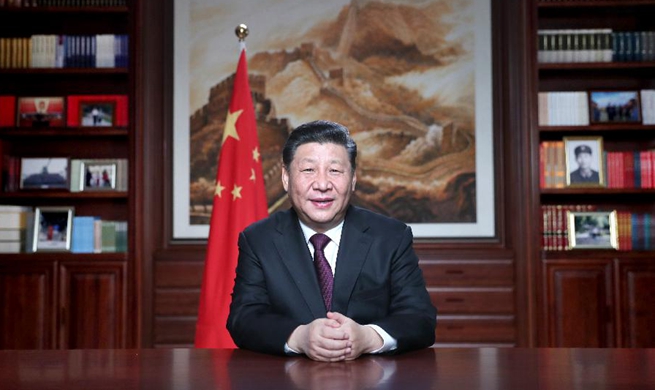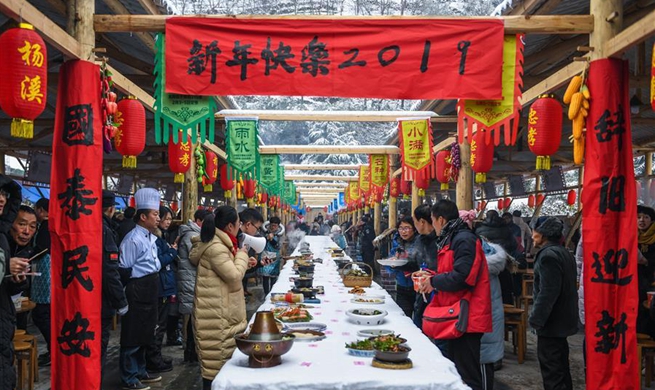WASHINGTON, Dec. 31 (Xinhua) -- China and the United States have contributed to stability and prosperity of the region and the world over the past four decades, Odd Arne Westad, S.T. Lee professor of U.S.-Asia Relations at Harvard University, told Xinhua in a recent interview.
On Jan. 1, 1979, Beijing and Washington established formal diplomatic relations. From then on, the relationship has not only served the interests of two countries and delivered benefits to the two peoples, but also engendered far-reaching significance to regional and global development.
The China-U.S. relations since 1979 have been particularly crucial for the openness and freedom of global trading system, providing development opportunities and dissemination of technology on the worldwide scale, as well as stability of the international affairs, Westad said.
"Ups and downs notwithstanding, the overall relationship between the United States and China has not been inherently unstable, which contributes enormously to the smoother period of international affairs in the last phase of the Cold War and after the Cold War ended," said the Harvard professor.
The overally healthy bilateral relationship between Washington and Beijing has also largely contributed to the region, he added.
"Though difficulties still exist in the Korean Peninsula and somewhere else, East Asia, on the whole, has been a haven of stability and prosperity, and China-U.S. cooperation is essential for that."
As a fellow of the British Academy and an authoritative scholar in Cold War history and East Asian studies, Westad used to be a professor at the London School of Economics and Political Science before moving to Harvard.
Westad is teaching course about how to understand the contemporary power shifts by using historical examples at Harvard Kennedy School.
He told Xinhua that the ongoing interactions between China and the United States have some similarities compared with previous cases of power transitions, but also with significant differences.
China is not the so-called "revisionist state" seeking to alter the current international system, since the current system serves China well, and contributes to China's success with its reform and opening-up, Westad noted.
Westad also said that comparing the competition between Washington and Beijing to "a new Cold War," which sometimes appeared in bombastic headlines, is a false historical analogy and terminological laziness.
The competition between the two countries in trade, investment, and technology is totally different from the scale and scope of global rivalry between Washington and Moscow along with their proxies in the Cold War era, Westad said.
"And instead of bipolarity between the United States and China, the world is heading towards a more multipolar structure," he added.
Westad also talked about his Harvard colleague Graham Allison and his bestseller book, Destined for War: Can America and China Escape Thucydides's Trap?
"Allison warns against the danger of wars and conflicts in power transitions, he is right about that," said Westad, "but wars and conflicts are not inevitable, and they all depend on leadership's policy choice."
War came because everyone was talking about war, and thought that might be a possible solution, but both the United States and China fully understand the tremendous cost and disastrous consequences of a potential conflict between them, he said.
"Great powers do rival each other, and this is what we learned from the history, but the issue is what kind of rivalry is it going to be, and which areas that the two sides could cooperate, that is the most important," he added.
Westad told Xinhua that he is optimistic about the development of U.S.-China relations.
"The big picture is that there is still a lot of potential for the United States and China to work together on some key issues, and the continued engagement policy would serve both sides well," he said.
The United States and China came closer from a great distance in 1979, not because they agreed on everything at that time, but because they talked about practical issues and cooperations in a pragmatic approach, said Westad.

















